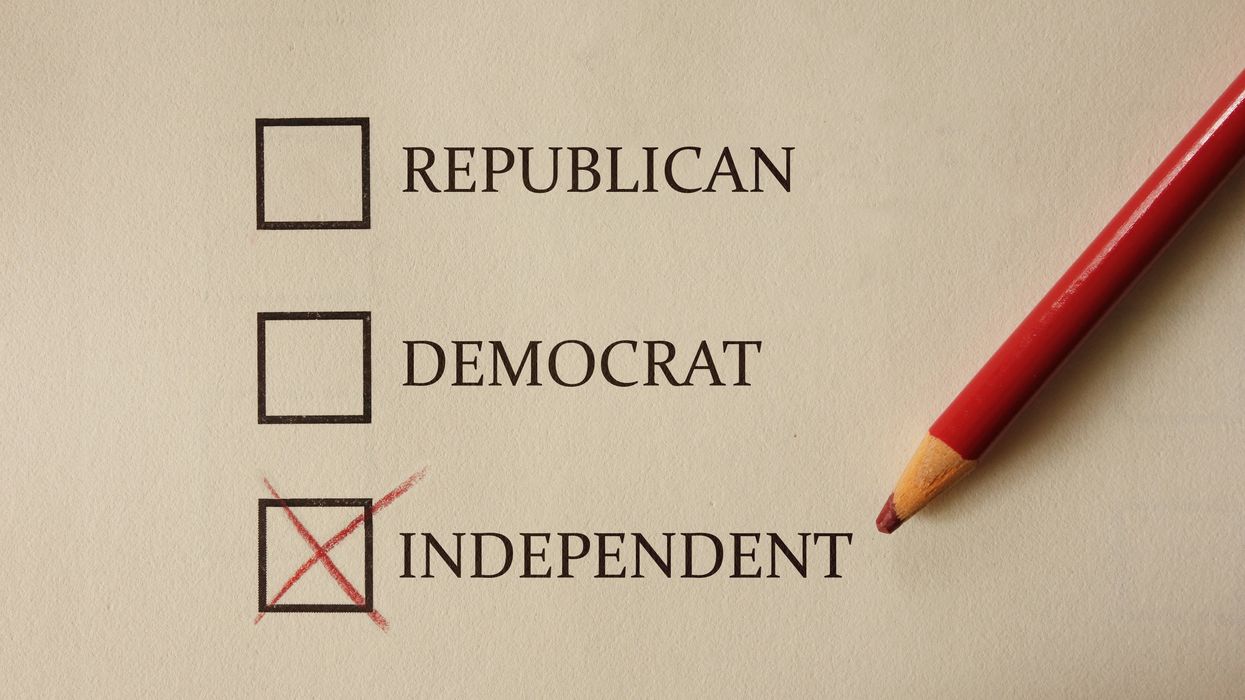Something feels wrong. American Democracy is supposed to be the beacon of hope that leads the free world. But for far too many, it feels like our votes do not elect leaders who truly represent what is best for our families and our communities.
Affordability of basic necessities is out of reach, and issues that have over 70% support from the public rarely get a second glance from those who are supposed to represent us. And at this point, our representatives are too busy fighting to maintain power than they are fixing the issues that we as Americans face.
For too long, American democracy has been filtered through two entrenched parties that act more like rival corporations, owned by the same investment bank, than representatives of the people. And we are fed up.
Politicians should actually have to earn your support at the ballot box, instead of assuming your loyalty. The parties want us to believe they are the only choice. But the truth is, more Americans self-identify as independents than with either political party. We are better at democracy because we refuse to play the parties’ game. Instead, we’re changing the rules so that democracy once again works for the people.
Independents aren’t beholden to only considering an idea as red or blue. We don’t have to agree to a strict political ideology or litmus test.
Across the country, independents are stepping forward with fresh ideas, collaborative mindsets, and a commitment to putting people over party. In upcoming elections, candidates like Jon Thorp in Tennessee’s 7th District, Dan Osborn in Nebraska, David Clayton in North Carolina, and Todd Achilles in Idaho are all part of a growing movement that challenges the status quo. These leaders aren’t asking for blind loyalty. Instead, they’re inviting voters to imagine a Congress where no party holds all the cards and every vote matters. When independents win, they can help restore balance, encourage negotiation, and bring merit-based solutions back to the legislative process. The future of American democracy may very well depend on voters willing to break with tradition and embrace representatives who aren't owned by either side.
When you head to the ballot box, consider casting your vote for an independent candidate. Because maybe it’s time we try something different.
I get asked a lot why I’m an Independent. The truth is simple: because Independents are better at democracy.
We don’t need party bosses telling us what to think, how to vote, or who to support. We can look at a person and judge them on their merit. We can look at a bill and judge it on its value. We can decide what matters to us—jobs, schools, healthcare, freedom—without waiting for someone in Washington to hand us a party-approved script. That’s not weakness. That’s democracy the way it was supposed to work.
Meanwhile, the two parties have turned democracy into a game of control. They thrive on division, gridlock, and loyalty tests. They tell us that stepping outside party lines makes us powerless. But the truth is the opposite: stepping outside the parties makes us powerful. It makes us the difference. And that difference could reshape Congress itself.
On December 2, 2025, voters in Tennessee’s 7th District will have a chance to prove it. Jon Thorp isn’t running to serve a party—he’s running to serve people. If he wins, it will be a signal heard across the country: independents can win, and when they do, they can change everything.
Because here’s the part the two parties don’t want you to think about: if independents hold just a handful of seats in 2026, neither party gets an automatic majority. Suddenly, they can’t ignore us. Suddenly, they have to negotiate, compromise, and put ideas ahead of ideology. For once, the balance of power would rest with the people, not the parties.
That’s the fight we’re in. Them versus us. The parties versus the people. And every independent victory brings us closer to a democracy that actually works.
We don’t need permission to take it back. We just need the courage to vote for it.
Austen Campbell is the founder of the Independent National Coalition, Austen has been focused on building infrastructure to support Independent candidates all over the country. He was the former Deputy Finance Director for Dan Osborn's Senate campaign in Nebraska and is now the Campaign Manager for Jon Thorp. Austen sees independent candidates as a solution to the current dysfunction in Congress and has a goal of supporting enough independent candidates to deny both political parties a majority in the 2026 Midterms.




















